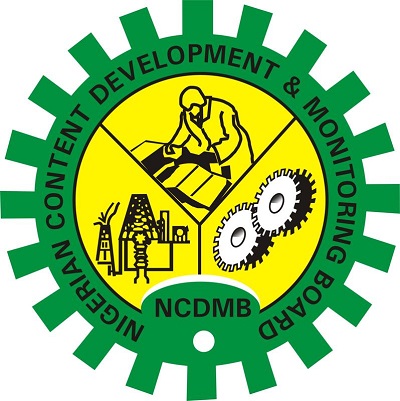…Targets 70% in two years’ time
The Nigerian Content Development and Monitoring Board (NCDMB) has said that it has raised the Nigerian Content Index from zero percent before the coming of the Nigerian Local Content Act and the Board about eight years ago to twenty-five percent currently.
The Executive Secretary of the Board, Simbi Wabote who disclosed this while delivering a paper titled; 8 Years After, Successes and Challenges of Local Content Law, at a one day sensitization seminar on Local Content Development in Shipping, Oil and Gas Logistics Operations in Nigeria, organized by the Maritime Reporters Association of Nigeria (MARAN) in Lagos on Tuesday recalled that the situation was so bad that owners of marine vessels used to take them to Aberdeen for wielding and return them to Nigeria, most of these at the expense of the federal government.
Wabote who was represented by Dr. Ginah O Ginah at the event noted that today, the Nigerian Content Index was standing at about 25% and still kicking upwards even as he attributed the feat to the aggressive and proactive implementation of the Act by the Board.
He said, “For those who are not mathematical inclined, let me just give a practical example of what this index mean. If we say Nigerian Local Content Index is 25%, it simply means that for every $100 billion spent in the industry, $25 billion is gotten in-country. So, if we apply it to our flagship project, the Egina Project which is worth about $16 billion, so, we are saying for this project alone, we have been able to keep behind about $4 billion which is a quarter of $16 billion and don’t forget, $4 billion is more than half of the country’s budget.
“So, that will be an idea of how much money is coming in through the effort of the Nigerian Content Development and Monitoring Board just on one mega project like this. So, it is quite an achievement for us and we are looking forward to pushing this figure to 70% in our ten year roadmap which we have actually put on paper”.
He observed that in the marine sector also, 36% of the marine vessels servicing the oil and gas sector were now owned by Nigerians which he said was a positive improvement on the near zero situation before the coming of the Act describing it as a huge plus for the Board.
“And if you go to places like Onne in Rivers State, you will see where some of these smaller marine vessels that are servicing the oil and gas industry are actually being built. So, instead of sending vessels to Aberdeen just to patch leakages, we are now building such smaller vessels in-country.
“Then you go to engineering design, for those of us who are engineers, before now, all the engineering works is being done abroad but I can tell you, just as it was done in Egina project, most of that work is being done now. The engineering design is actually the brain of every project. In the engineering side of it, you start from the design, from the process before you get to the fabrication of it. So, we are pushing the fabrication end which is the hard core and also the soft end which is the engineering and process part of it. It is the process that will determine the kind of application or equipment that we are going to use eventually to achieve the drilling operation.
“Also, we have done a lot of work in terms of fabrication, we now have a lot of world class application yards here in Nigeria, already we know of LADOL yard where we did the integration of our Egina FPSO, Saipem heavy fabrication yard, Port-Harcout, we also have Niger Dock and so on. So, we have a lot of capacity in terms of fabrication now in-country. In fact, in some areas, we may be looking into over capacity given the little amount of investments that is coming into this untapped environment”, he stated.
The Executive Secretary pointed out that contrary to the popular opinion that pipelines carrying the oil were collapsing on account of sabotage, he said that sabotage was only a part of it noting that they were collapsing as a result of old age as most of the pipelines had expired having lasted for more than fifty years.
“As a proactive organization, we started the initiative of building capacity in pipe mills in Nigeria. Today as we speak, we have at least two world class pipe mills in Nigeria fully functional and more are coming. One is in Lagos here – Yulong, the other one is in Abuja -SCC. So, what this is already achieving is that all the pipes that we are now using to replace the old ones and the new ones that projects like the Egina Project is using are now being manufactured in-country”, he explained.
Send your news, press releases/articles to info@primetimereporters.com. Also, follow us on Twitter @reportersinfo and on Facebook on facebook.com/primetimereporters or call the editor on 07030661526, 08053908817.

